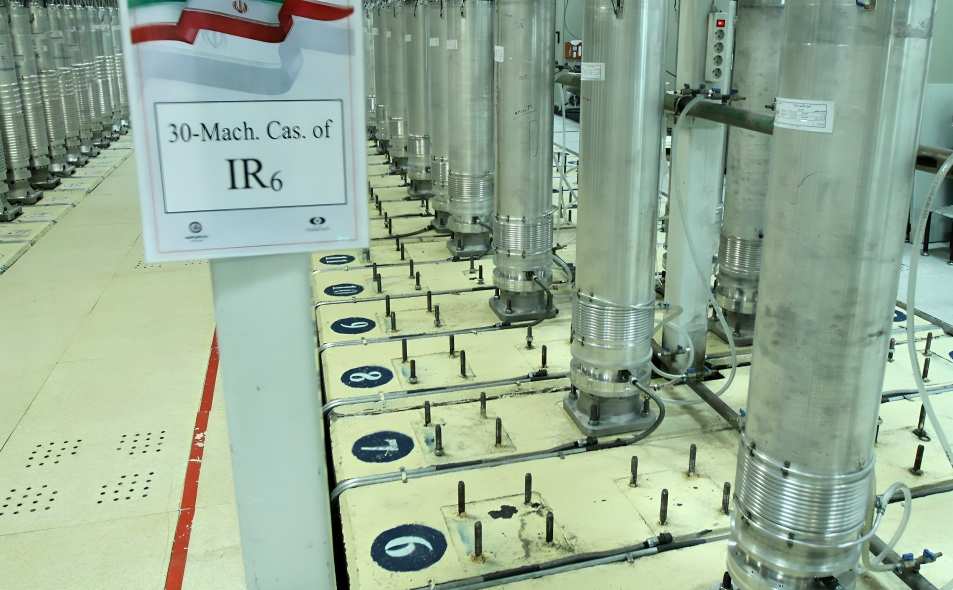Iranian Foreign Ministry Spokesman Nasser Kanani dismissed a warning by the director-general of the International Atomic Energy Agency (IAEA), Rafael Grossi, who stated that Tehran was “not entirely transparent” regarding its nuclear program.
“We advise the director-general of the agency to refrain from making political statements that are not within his purview,” Kanani said on February 19, according to the IRNA news agency.
The spokesman pointed out that 15 reports of the IAEA “have stated that Iran’s nuclear program is peaceful and within the framework of the safeguards agreement,” emphasizing that the use of nuclear weapons was not part of Tehran’s military doctrine.
On February 19, Grossi stated that Iran continues to enrich uranium well beyond the needs for commercial nuclear use despite UN pressure to stop it, expressing his desire to visit Tehran next month for the first time in a year to address the issue of “drifting apart.”
The IAEA chief mentioned that “while the pace of uranium enrichment had slowed slightly since the end of last year, Iran was still enriching at an elevated rate of around 7 kg of uranium per month to 60% purity.”
Earlier, on February 13, Grossi had stated that Iran is “presenting a face that is not entirely transparent when it comes to its nuclear activities. Of course, this increases dangers,” adding that “there’s loose talk about nuclear weapons more and more, including in Iran recently.”
Grossi’s remarks came after Ali Akbar Salehi, the former head of the Atomic Energy Organization of Iran, implied that Iran has everything it needs for a nuclear bomb.
“We have [crossed] all the thresholds of nuclear science and technology. Here’s an example: Imagine what a car needs; it needs a chassis, an engine, a steering wheel, a gearbox. You’re asking if we’ve made the gearbox, I say yes. Have we made the engine? Yes, but each one serves its own purpose,” Salehi said in a televised interview on February 12.
Iran, as a signatory to the Treaty on the Non-Proliferation of Nuclear Weapons, has pledged to allow the IAEA to visit its atomic sites to ensure its program is peaceful. In October 2003, Iran’s Supreme Leader Ayatollah Ali Khamenei issued a religious edict (fatwa) that forbade the production and use of any form of weapon of mass destruction. The fatwa was cited in an official statement by the Iranian government at a meeting of the IAEA in Vienna in August 2005.
Tehran denies seeking nuclear weapons, but it has accelerated its nuclear program and moved well beyond the 2015 nuclear deal's restrictions after then-President Donald Trump pulled the US out of the deal in May 2018 and re-imposed sanctions on Iran.
In May 2021, the IAEA announced that Iran had recently produced 62.8 kilograms of uranium enriched up to 20 percent purity and 2.4 kilograms enriched up to 60 percent purity — well above the 3.67 percent purity allowed under the nuclear deal. Nuclear weapons-grade is around 90% purity.
Since 2022, Iranian officials have spoken openly about something long denied by Tehran as it enriches uranium at its closest-ever levels to weapons-grade material. An adviser to Iran’s Supreme Leader Ayatollah Ali Khamenei, Kamal Kharazi, told Al Jazeera in mid-July 2022, “In a few days we were able to enrich uranium up to 60%, and we can easily produce 90% enriched uranium. […] Iran has the technical means to produce a nuclear bomb, but there has been no decision by Iran to build one.”
Between June and November 2023, Iran slowed down enrichment to 3 kg per month, but it jumped back up to a rate of 9 kg at the end of the year. The IAEA warned at the end of 2023 that Tehran already had enough material to make three nuclear bombs if it enriches the material now at 60% to beyond 60%.







 Azerbaijan and Armenia started the process of demarcation of their border on Tuesday, with the installation of the first border markers based on ge...
Azerbaijan and Armenia started the process of demarcation of their border on Tuesday, with the installation of the first border markers based on ge...
 Armenian sappers commenced on Monday mine-clearance operations in the territories adjacent to the Saint Mary Church in village of Voskepar (Armenia...
Armenian sappers commenced on Monday mine-clearance operations in the territories adjacent to the Saint Mary Church in village of Voskepar (Armenia...
 Iran and Pakistan have signed eight cooperation documents in various fields, and agreed to strengthen ties to fight terrorism in the region.
Iran and Pakistan have signed eight cooperation documents in various fields, and agreed to strengthen ties to fight terrorism in the region.
 As the conflict between Ukraine and Russia escalates, the strategic importance of Kharkiv, Ukraine's second-largest city, has come sharply into focus.
As the conflict between Ukraine and Russia escalates, the strategic importance of Kharkiv, Ukraine's second-largest city, has come sharply into focus.
 President Aliyev emphasized the critical role of the North-South Transport Corridor in fostering transport cooperation between Azerbaijan and Russi...
President Aliyev emphasized the critical role of the North-South Transport Corridor in fostering transport cooperation between Azerbaijan and Russi...



